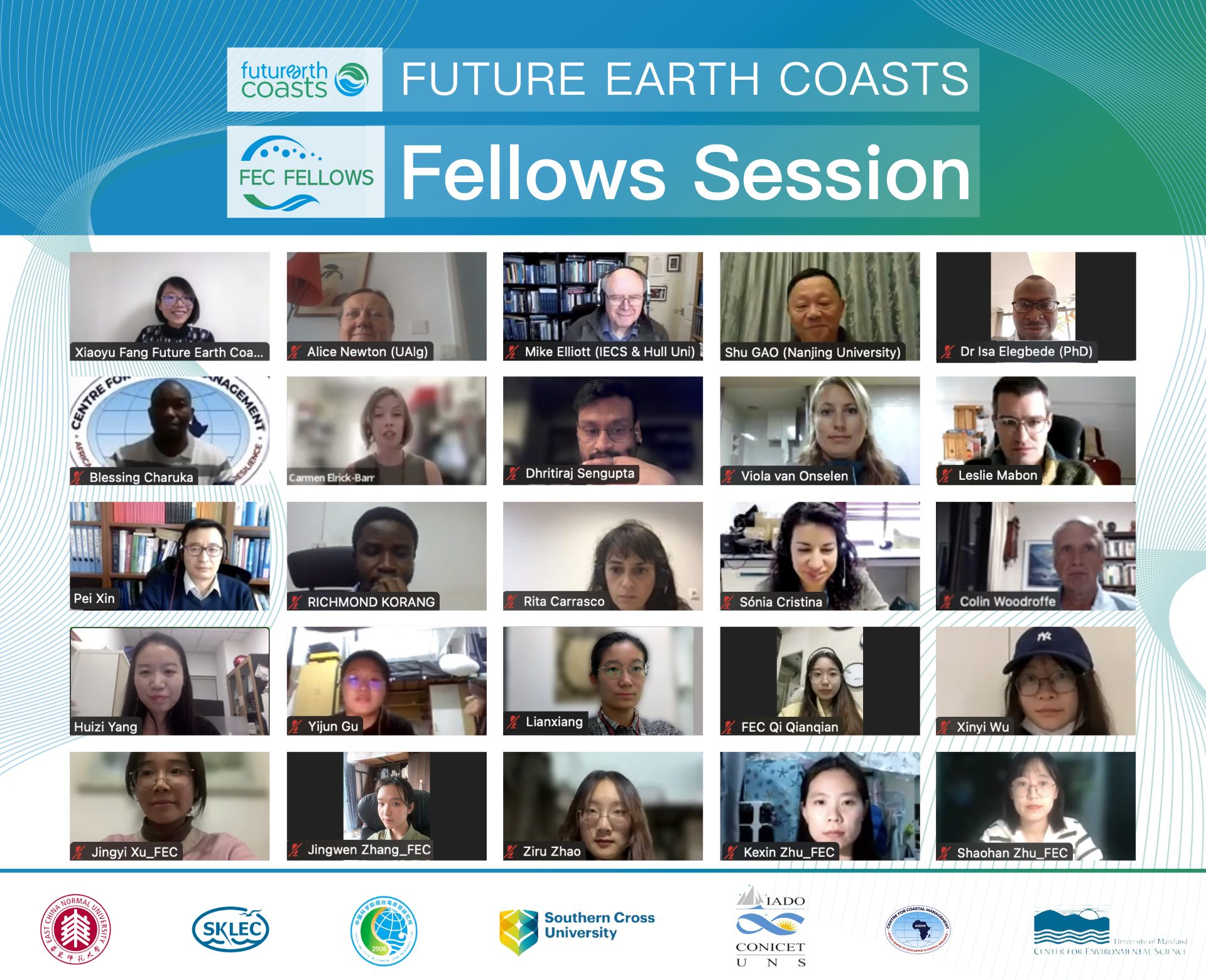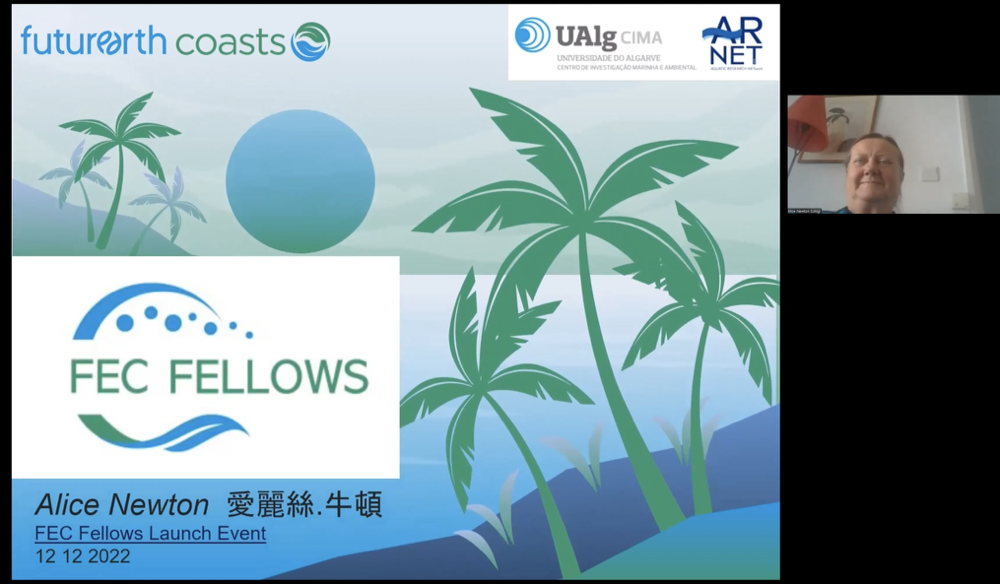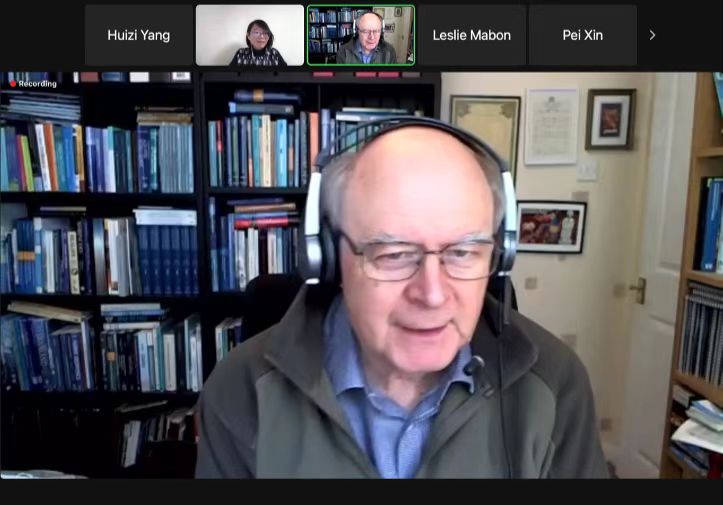‘FEC Fellows Session’: Setting sail with FEC Early Career Researchers

FEC Fellows Session Group Photo
The long-awaited “FEC Fellows Session” took place online on 12 December, welcoming Early Career Researchers from FEC network, East China Normal University and MACOMA/WACOMA Erasmus Programme. The kickoff session provided the perfect stage for Early Career Researchers and Academy members to exchange innovative ideas and career experience. The workshop was moderated by Dr. Xiaoyu Fang, the director of FEC International Project Office (China). She welcomed all participants and further introduced the aim of the session is to gear up Early Career Researchers by providing meaningful networking and professional development opportunities.

Keynote Speech – Prof. Alice Newton
Professor Alice Newton, the Center for Marine and Environmental Research, University of Algarve (Portugal), delivered the keynote speech. As a representative from the FEC Academy and a FEC Regional Engagement partner, she introduced the organization structure and goals of FEC and shared various activities she had participated along with other FEC members. She took the audience through the history of WACOMA and MACOMA Erasmus Programme, which were academically supported by scholars from LOICZ (later FEC). She also thanked all the members who had made efforts for the development of FEC. She concluded her speech by expressing her vision for the FEC Early Career Researchers that this group will keep expanding.
Presentations from a rich lineup of FEC Fellows from six countries with diverse academic backgrounds followed. FEC Fellows introduced their recent research. Dr. Isa Elegbede is currently focusing on exploring more opportunities for Africa through global networking, data sharing and the impact of fishing activities in marine environment. Blessing Charuka gave a detailed introduction on the geography, coastal features and infrastructure of Ghana, and shared his views on coastal management in Ghana. Dr. Carmen Elrick-Barr presented the need to improve resilience and transformation in response to current climate disasters that we need to make governance structures more equitable and sustainable, and to build ocean citizenship. Dr. Dhritiraj Sengupta shared his views on the planning of a marine spatial infrastructure database and stressed the importance of creating a platform for sharing data. This will be an open platform for FEC Early Career Researchers to share their research data. Ms. Viola van Onselen, has worked on a wide range of topics including ecosystem-based disaster risk reduction (Eco-DRR), coastal dune vulnerability assessment (CDVI), coastal erosion in Vietnam (HCMUT University), rural revitalization in Japan (Nagasaki University), and approaches to increasing biodiversity in aging and depopulated areas. Dr. Leslie Mabon introduced his recent publication “Bring voices from the coast into the Fukushima treated water debate” in Proceedings of the National Academy of Sciences as an example to analyze how to allay Japanese fishermen’s confidence in the safety of treated water in Fukushima so as to revive their economy while strengthening their sense of identity. He made two recommendations: to establish an independent research institute and to delegate the decision-making and governance to stakeholders. Professor Pei Xin focuses on the land-sea interface and highlighted the characteristics of salt marshes, including their worldwide distribution and benefits in providing essential habitat and functioning as a natural buffer.
FEC Fellows presentations sparked stimulating conversations. While actively giving feedback on the presentation of the speakers, audiences introduced their academic backgrounds and their current research. They showed a strong interest in each other’s research and exchanged ideas on potential collaboration opportunities FEC Vice-Chair Prof. Mike Elliott and FEC Academy member Prof. Shu Gao also provided their insights on Fellows’ presentations and gave some guidance and advice.

Prof. Mike Elliott

Prof. Shu Gao
At the end of this session, Prof. Alice Newton, Prof. Mike Elliott, and Prof. Shu Gao from FEC gave their concluding remarks in turn. Alice was very happy to see that FEC Early Career Researchers have great enthusiasm for their research field, and their research outcomes were impressive; In addition, FEC aims to provide all researchers with platforms and channels for communication and cooperation. Mike pointed out that attention needs to be paid to discoveries and progresses in other parts of the world. He emphasized that learning these excellent works would help broaden minds. Shu was very pleased to meet new and old friends. He mentioned the complexity of the coastal system, the length of the life cycle, and coastal erosion. Then he proposed that we need to find some new approaches to adapt to future climate change and sea level rise, and new technologies should also be actively used such as artificial intelligence, machine learning, and big data analysis. He also mentioned that the development of the Mega-Delta was particularly important, and interdisciplinary research should be carried out. He also introduced the official FEC journal, Anthropocene Coasts, to participants and welcomed all to contribute.
Watch the recording
Learn more about ‘FEC Fellows Session’:
FEC Fellows Session: Human Development and Coasts
FEC Fellows Session: Dynamic Coasts
FEC Fellows Session: Just Transitions
FEC ‘Just Transitions’ webinar: Integrated Approaches to Coastal Management along the Gulf of Guinea
